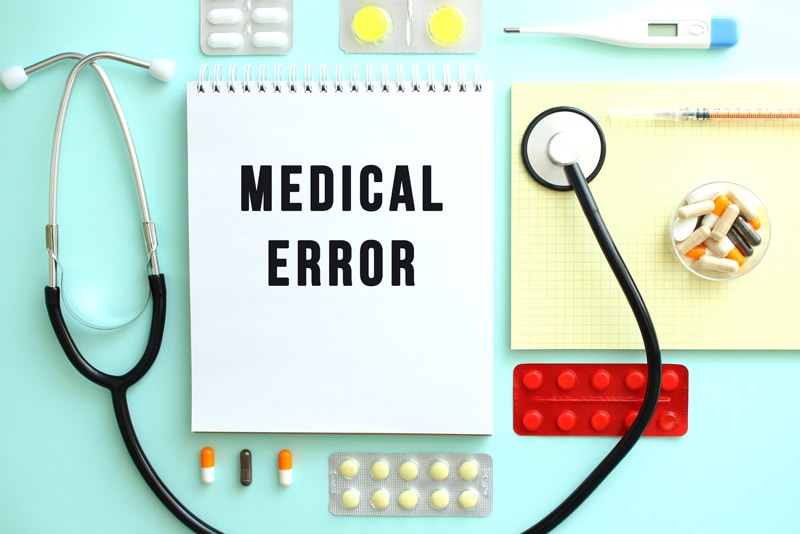
Accurate, clear, consistent and complete medical records are necessary for proper decision-making and the delivery of quality healthcare. Today, most physicians rely on medical transcription services to ensure correct EHR documentation. This makes medical transcriptionists an important cog in the wheel. Responsible professionals are focused on provided completed files that are 99% accurate. In fact, such attention is crucial to when it comes to converting physician dictation to text.
Medical transcription can be categorized under three heads: critical, major, and minor. The critical and major mistakes can prove costly and compromise patient safety.
Serious Errors in Medical Transcription: A Closer Look
Let’s take a look at the serious errors that can occur in medical transcription.
- Patient ID mistakes: Every patient is assigned an identification number. Accurate identification of patients is crucial for patients who are non-communicative or are confused, patients or residents who require a special diet, to label containers used for blood and other specimens, and so on. Wrong patient identification hinder patient safety, cause detrimental healthcare outcomes, create opportunities for medical identity theft, and lead to patient data integrity failure, according to Patient Safety & Quality Healthcare (PSQH) article.
Some transcription platforms add names automatically, but others require it to be manually entered. To avoid an error, the medical transcriptionist should confirm that the name on the report is the same as what’s dictated. If it is absent, the patient’s name should entered correctly.
- Omission in dictation/missing part: Omission of important dictated words is another serious mistake. All words in the audio should be typed in, with special attention to important words relating to symptoms, diagnosis, and the treatment plan. To avoid omitting important words in the physician’s dictated report, an experienced transcriptionist will focus on accuracy and not speed. Phrases or words that are difficult to understand or not clear should be tagged and not omitted.
- Misuse of medical terminology: Medical terminology includes confusing terms, abbreviations and variations. Medical transcriptionists, especially those who are new to the job, must be careful not to confuse medical terms. Misuse of medical terminology usually occurs with words that sound similar. Some examples include sac/sack; perfusion/profusion; cord/chord; BNP (brain natriuretic peptide)/BMP (basic metabolic panel); pharynx/phalanx; dysphagia/dysphasia. Experienced medical transcriptionists are knowledgeable about medical terminology and can identify medical terms, abbreviations, and phrases in dictated reports.
- Wrong verb use and spelling mistakes: Back formation involves creating a new word by altering an existing word, usually a noun. Back formations are usually verbs but may appear as adjectives or adverbs. While back formations and false verbs are common in general communication but should be avoided in medical records. The Association for Healthcare Documentation Integrity (AHDI) gives examples of back formations that are considered unacceptable as: dehiscence-to dehisce; torsion-to torse; diuretics-to diurese.
Misspelled words are another problem when it comes to medical transcription reports. Spelling errors can cause confusion, and also lead to improper care which can have serious consequences. Words often misspelled include: abscess, adolescence, hemorrhoid, humerus, syncope, and syphilis. New terms, medications, equipment, or instruments may end up being spelt incorrectly since they are no reliable resources to verify them. Electronic spell checkers can be useful to correct spelling errors. But unfamiliar and new words should be flagged for verification.
Transcription reports that have one or more critical errors or three or more major errors are considered unacceptable and rejected.
A medical transcriptionist must also avoid editing a physician’s report when it alters the information or deletes appropriate or essential information, or the creator’s style. The AHDI recommends editing as necessary for clarity in the communication is acceptable for the following:
- Grammar, punctuation, spelling, and similar dictation errors
- Slang words and phrases, incorrect terms, incomplete phrases
- English or medical inconsistencies
- Inaccurate phrasing of laboratory data
Errors associated with the medication order transcription and verification process can also be serious. One study reported that it can include a variety of omissions, inadvertent cancellations or duplications, and dose transcription errors such as reversing the doses between two drugs or wrong charting of the time a drug has to be administered (such as every 6 hours instead of every 8 hours). The risks are higher for chronic hospitalized patients who may have to undergo several drug-related therapies, which necessitates passing through all medication use process like prescription, dispensing, transcription, and administration that may increase the occurrence of medical errors.
Maintaining specialty standards for reports is also critical. For instance, oncology transcription service providers should be well-versed in the terminology and spellings relating to diseases and conditions arising from red blood cell disorders. Transcriptionists should be familiar with the terms used to describe red cell morphology such as spherocytes, anisocytosis Howell-Jolly bodies, acanthocytes. megalocytes, stomatocytes, drepanocytes, and Rouleaux.
“Preserving the tone and scope of that encounter, while ensuring the accuracy of the data being captured, is critical to creating a long-term care record that is historically and clinically meaningful” notes the AHDI.
Skilled, qualified medical transcriptionists in US based medical transcription companies honor the physician’s dictation style, while identifying errors or inconsistencies and correcting them without affect the integrity of the medical record.
Need accurate and reliable medical transcription services? We can assist you.
Save 30 to 40% on your transcription costs! Call 1-800-670-2809 for a Free Trial!


